Apologizing Well
Because all of us make mistakes in our relationships, an important friendship skill is learning how to apologize sincerely and effectively. Apologizing well when we hurt a friend with our words or actions is a skill we’re working on growing this summer at GAC.
In just about every conflict, the disagreement or issue is never ALL one person’s fault. Usually both people did or said something that hurt the other person. With campers, we brainstorm examples of conflicts they get into with friends – often minor things like disputes over card games or using an item that belongs to someone else without asking. Sometimes, we unintentionally hurt a friend.
Apologizing well includes owning up to mistakes and apologizing for words or actions that hurt another person. A sincere and thoughtful apology is the most effective way to resolve conflicts with friends & family members.
Conflicts are a normal part of all relationships, so we are normalizing for campers that all of us – at times – need to apologize to our friends. These are the simple steps to making a meaningful apology when we’ve done or said something we regret or that has hurt our friend.
6 Steps to a Good Apology
-
Use the words, “I’m sorry.”
-
Acknowledge exactly how you messed up.
“I used unkind words that hurt your feelings.”
-
Tell how you were feeling and why you think you did the thing.
“I was feeling jealous of how well you did at wake boarding, so I made an unkind comment.”
-
Tell the person how you’ll fix the situation.
“I’d like to share some things that I really admire about you so that you understand how much I like you. And I’m going to take a breath before I make impulsive comments.”
-
Promise to behave better next time.
“I’m going to do my best to not blurt out unkind things. If I mess up, I want you to tell me.”
-
Ask for forgiveness.
“Will you forgive me for messing up your card game?”
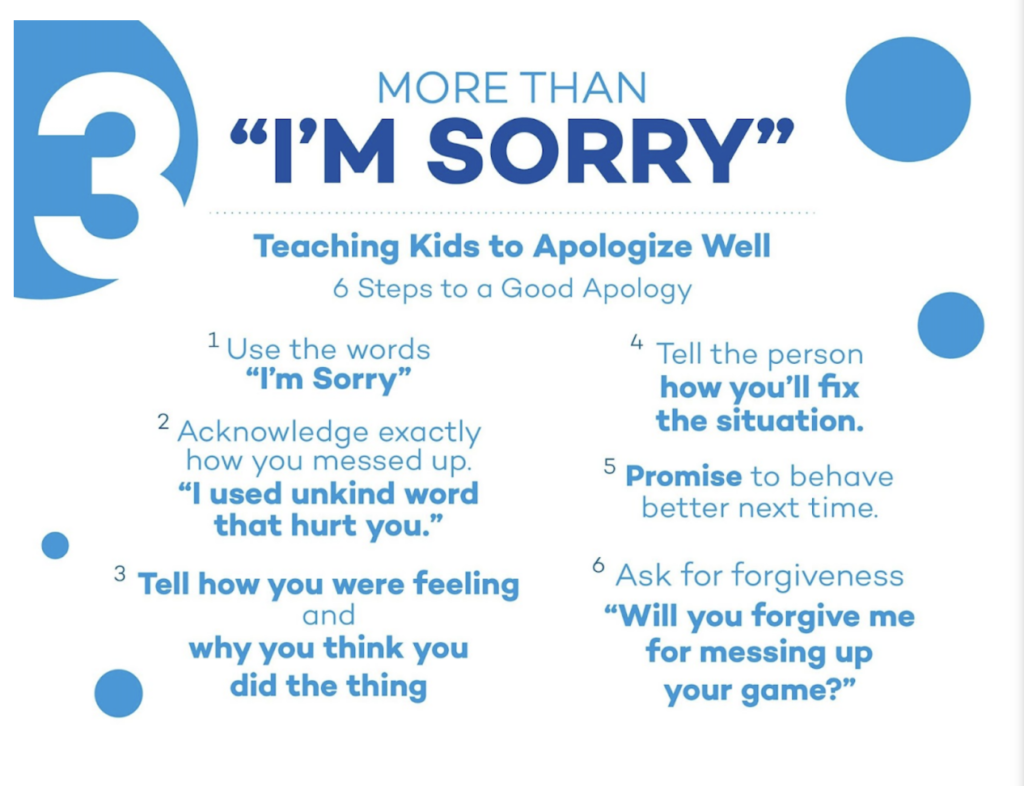
Resources/Related
Session 2 Outpost & Events Schedule
There’s always something going on at camp, whether that’s a cabin theme day, a backpacking trip or a visit to Shaver Island! Check out the outpost schedule below to see where each cabin is going this session.
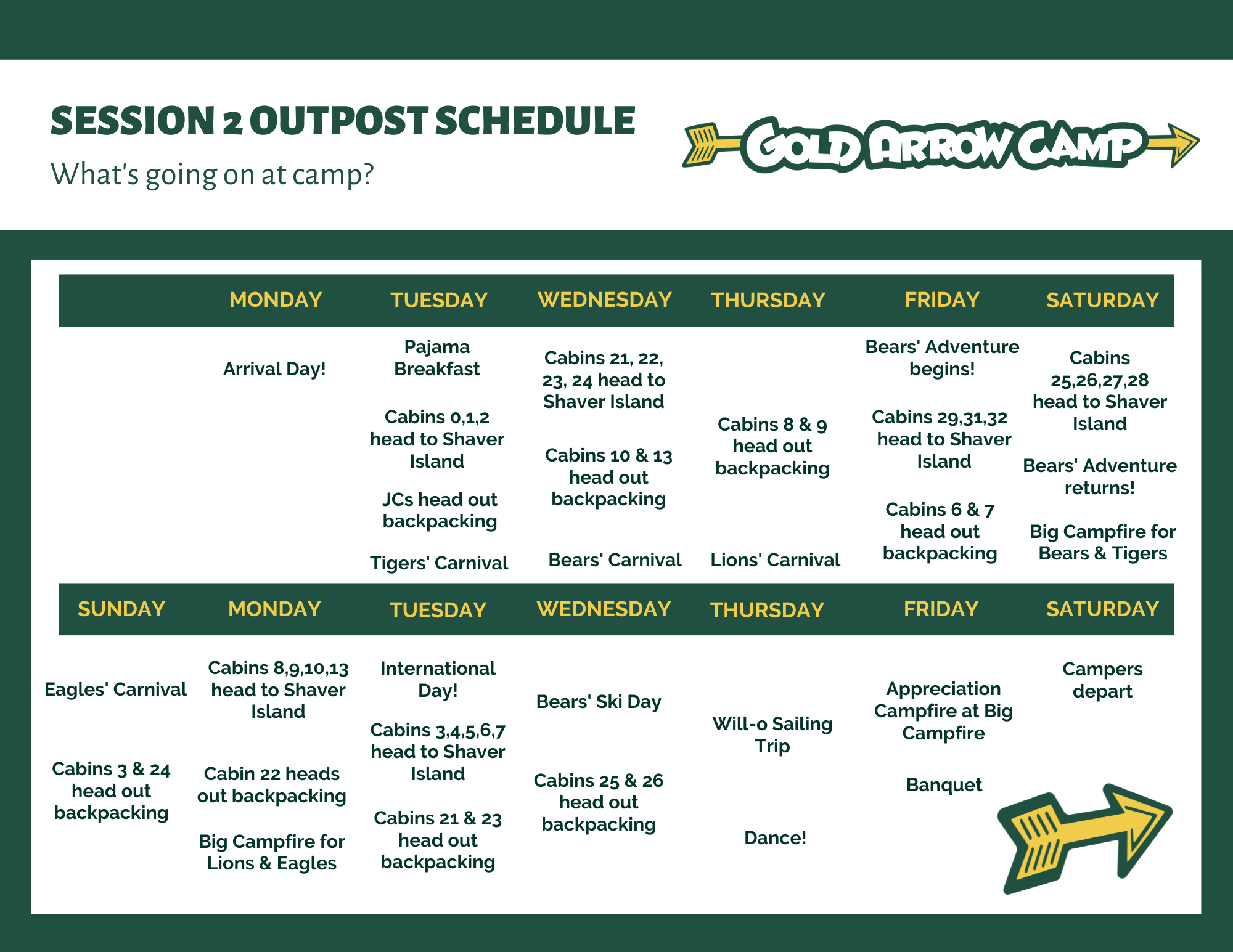
Session 1 Outpost & Events Schedule
There’s always something going on at camp, whether that’s Jers-day Thursday, a backpacking trip or a visit to Shaver Island! Check out the outpost schedule below to see where each cabin is going this session.
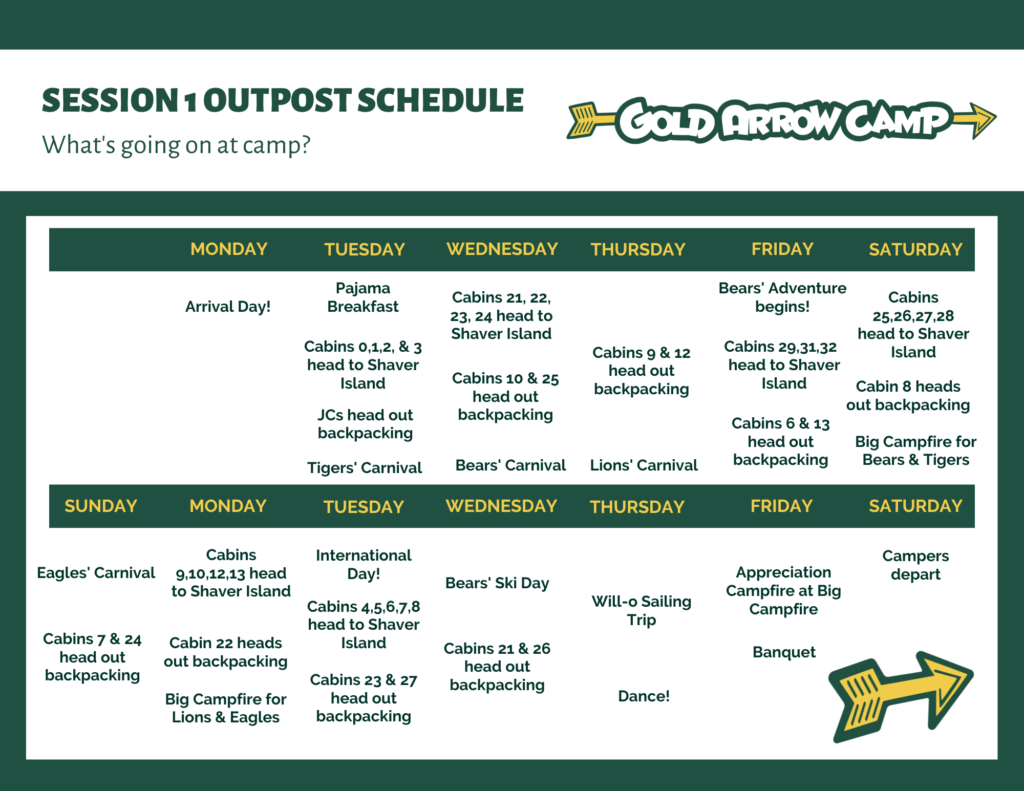
Session 1 Plus – Shaver Week Has Begun!
Yesterday, we welcomed an awesome group of campers for Session 1+, which starts with a week at our Shaver Island Outpost camp. Among this group of campers, there are ten 3-year campers, two 5-year campers, and two 10-year campers. Eight campers from outside of California.
They’re going to enjoy an action-packed week of waterskiing, wakeboarding, and kneeboarding on our island outpost in the middle of Shaver Lake. They will get to sleep under the stars after spending fun-filled days on the lake! How lucky they are!
Want to learn more about June Specialty? Click here.
How To Pack For Camp
Packing for camp is the start of your child’s independent camp experience. Please have your child participate in packing for camp so that he/she knows where to find their clothing and other items. Campers who don’t participate in packing often don’t know what they have or where to find things, which makes it harder to acclimate to camp. Be sure to download and print the appropriate packing list.
Luggage
- For our two-week (and longer) sessions, we recommend campers pack in two pieces of luggage. One larger piece (soft-sided trunk or footlocker) can be used for most of the camper’s clothing. A smaller duffle bag can be used for sleeping bag, pillow, and other equipment that doesn’t fit in the main piece of luggage. The smaller duffle bag will be used for campers who travel to and from Shaver Lake. For campers traveling by air and coming with only one piece of luggage, a backpack or small sport-sized duffle bag can be packed within your main bag and used for the Shaver trip. A small backpack is also useful for carrying a towel, shower supplies, or other equipment around the camp. Please note that campers do not unpack into drawers or cubbies in the cabin during their stay.
- All luggage must be tagged with camper’s name. Luggage tags are sent to camp families in April. Additional luggage tags will be available at the bus stops and camp on the first day of each session.
Labels
- All of your camper’s clothing and belongings must be clearly labeled with your camper’s full name. Items that are not labeled are unlikely to be returned to your camper if lost in the cabin or around camp. A sharpie marker, iron-on or stick-on labels, or stamps all work for labeling.
Shoes
- Our terrain at camp is rough and uneven, and appropriate footwear is a safety requirement. Please make sure your camper has at least one pair of closed-heal and closed-toe shoes that have adequate tread for walking on rocks, dirt, and other uneven surfaces. Running shoes, hiking shoes, or other athletic footwear work well at camp, as long as they fit the camper well and have adequate tread. Other types of shoes (flip flops, Crocs, Converse, etc.) can be worn in the cabin and at the waterfront, but closed-heal, closed-toe shoes must be worn while walking around camp, participating in activities, and traveling to and from camp.
Younger Campers
- For younger campers, we recommend placing like-items together in their main piece of luggage to easily access what they need for the day or activity. For example, stack all short-sleeve t-shirts together, include underwear in a packing cube or plastic zip-lock bag, group pants in one area, etc.
Climate
- Gold Arrow Camp is located at 7000 feet elevation, and our night time, mountain temperatures can get very chilly. Be sure your camper’s sleeping bag is rated to at least 30 degrees F (or lower), so that your camper will be warm at night. Sleeping bags used for indoor, overnight sleeping are not sufficiently insulated for camp use.
What Not To Bring
- Do not send any of these items, as they are not allowed: food, candy (including gum), cash, water guns, silly string, water balloons, sling shots (or any other weapons), electronic games, headphones, e-readers, cell phones, fireworks, knives, matches, lighters, tobacco, alcohol, or illegal drugs. For campers traveling by air, cell phones, headphones, and travel money can be held in our office.
- Do not send valuable items such as expensive cameras and jewelry. We recommend campers use a disposable camera marked with their name.
- Send old clothes that do not require dry cleaning or special washing. Laundry service is provided for campers staying three weeks or longer. Urgent laundry will be done for campers staying for a one or two-week session. Do not bring irreplaceable items to camp, as they could get lost or damaged.
- Please do not send any personal athletic equipment (water skis, fishing poles, etc.). We provide top quality equipment that is sized for our campers.
Messages For An Anxious Camper
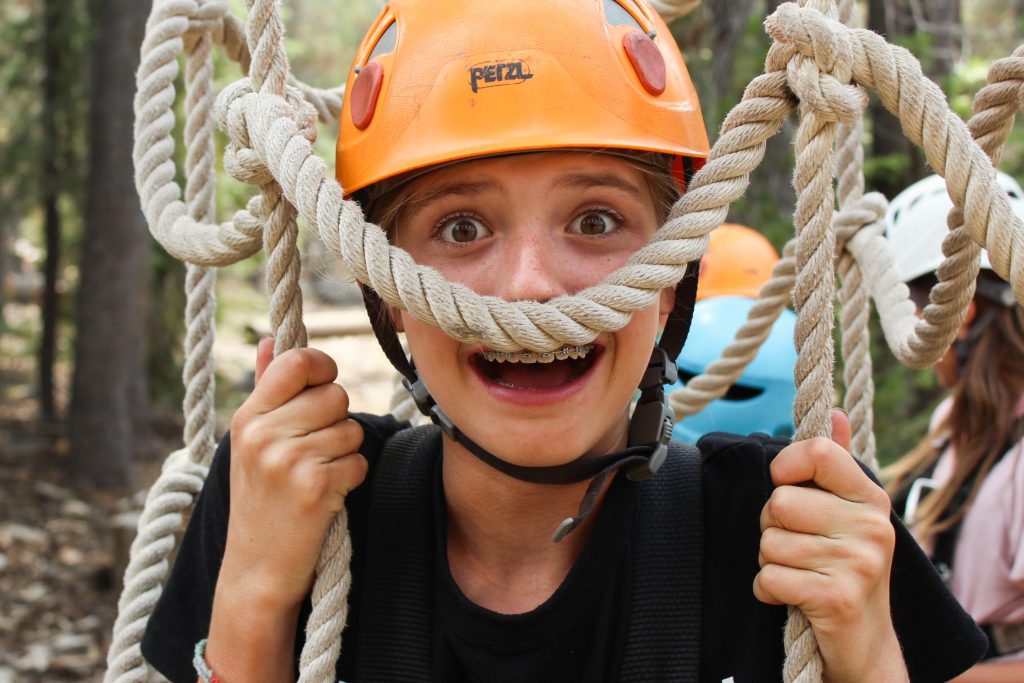
Read more of Sunshine’s camp-related posts at her website, Sunshine Parenting.
“Children want to be independent, and they realize that they cannot be truly independent until they beat homesickness, even when they have a painful case of it.”
– Michael Thompson, PhD., Homesick and Happy
Recently I spoke with a mom whose 11-year-old son is coming to camp in a few days. He’s nervous. He had a negative experience at a one-week science camp. He doesn’t think he can “make it for two weeks” and is worried he’ll be too homesick to make it at camp. I chatted with the mom and gave her some key messages to communicate to her son. She asked for them in bullet points in an email, and I thought there are probably others who might benefit from this same list, so I’m sharing this with anyone who has a child suffering from pre-camp anxiety.
Before I share my list, let me say that if you are not a camp proponent and don’t plan on sending your child to camp, you should probably not read any further. I am a huge supporter of camp and recently had a JC (Junior Counselor) tell me that “Camp made her who she is today.” So, I think that camp is a great thing for building kids’ independence and confidence. I have also seen many kids work through some pretty painful emotions at camp, so I know that camp is not easy for all kids.
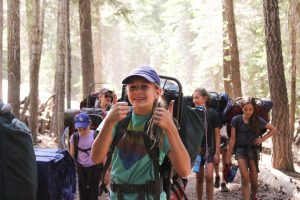 We have 7-year-olds at our camp who do great during our two-week sessions. They are the ones who’ve begged their parents to let them come to camp and generally have older siblings who’ve attended camp. I also talk to a lot of parents with older kids who “aren’t sure if they’re ready for camp.” One thing I’ve learned after close to three decades at camp is that the same kids who are anxious and hesitant about going to camp when they’re nine or ten will still be anxious when they’re 13. And they may not be interested in going away to college when they’re 18, either.
We have 7-year-olds at our camp who do great during our two-week sessions. They are the ones who’ve begged their parents to let them come to camp and generally have older siblings who’ve attended camp. I also talk to a lot of parents with older kids who “aren’t sure if they’re ready for camp.” One thing I’ve learned after close to three decades at camp is that the same kids who are anxious and hesitant about going to camp when they’re nine or ten will still be anxious when they’re 13. And they may not be interested in going away to college when they’re 18, either.
So, as a parent, you need to decide how to approach your child’s separation anxiety, as well as your own. You can avoid it and not send them to camp and hope that they develop independence in other ways, which is definitely possible. Or, you can bite the bullet, give them these positive messages, and send them off to camp with a smile, knowing that it may be hard for them, but they will grow from the experience.
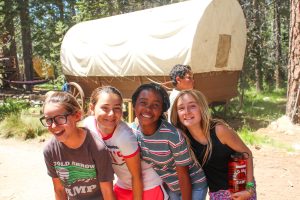
In Michael Thompson, PhD.’s book Homesick and Happy, he says “It is the very challenge of camp that makes it such a life-changing experience for so many children.” I know there are many parents and children who just can’t stomach the idea of going through some painful time apart. Again, you need not read further if you are not sending your reluctant child to camp.
This post is for those of you who have decided that your child is going to camp, and especially for those of you who had a previously excited camper who is now having last-minute camp anxiety. Here are some messages you can give prior to dropping your camper at the bus or at camp. Pick and choose, and of course, use your own words, but acknowledge your child’s feelings and empathize with them while holding firm in your confidence in their ability to succeed and your belief that camp will be good for them.
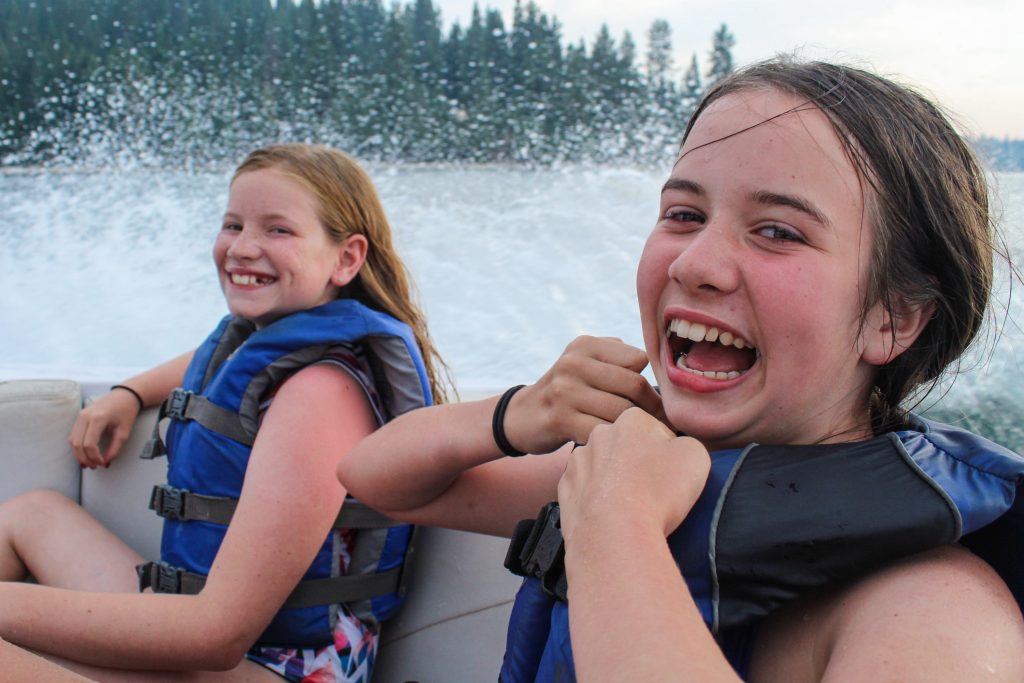
Without further ado, here are some messages to give to your anxious camper:
-
Let them know that missing home is okay.
“You may feel homesick, and that’s okay. A lot of kids feel that way. That just means that you love us and you love home. I feel homesick when I’m on trips, too. Missing home is part of life. But I know you can still have fun at camp, even if you feel sad sometimes.”
-
Reassure them that there are people at camp who will take care of their needs.
“There are adults at camp (counselors, directors) who are there to take care of you and help you with anything you need. They can help with things you normally come to me about. Let them know if you are feeling sad, and they can help you. They have lots of experience working with kids who are away from home for the first time.”
-
Talk with your child honestly about the importance of starting to develop some independence.
Something along the lines of: “It may seem like a long way off, but in a few years, you’ll be ready for college. I want you to feel confident in your ability to live away from me so that you can choose any school you like, even if it’s far away from home. Think of camp like your practice time for when you’re older and ready to move away for school or a job. You’ll get better at being independent by starting now, when you’re young, with short spurts of time away. Some kids aren’t doing well when they start college because they don’t have any experience being away from home. I want you to feel great when you go to college because you’ll know that you’ve already been successful with short camp stays.”
-
Share the reality that many good things in life come with some pain and failure.
If you have a story from your own life of something that you had to work hard at or had to go through difficulties in order to master, this is a great time to share. Something along the lines of, “Many good things in life aren’t easy at first. Learning a new sport or trying something new is really hard. Sometimes you have to get out of your comfort zone to discover something you really love. If you never go through anything hard, you’re going to miss out on some great experiences. The first few days of camp may be hard, and that’s okay. I know you’ll work through it and figure out what makes you feel better. I have confidence in you, and I am so proud of you for going to camp and trying this new adventure!
-
Let them know that you are confident in them.
“I am so excited that you get to go to camp this year. I know it’s going to be such a great experience for you and that you are ready for this.” If you went to camp, share with your camper what you liked about it and how you grew from the experience.
-
Make sure they know you want to hear about everything.
“Every day comes with its good and bad parts. When you’re at camp, I want you to write me letters and tell me all of the stuff that you’re doing and feeling. If you feel homesick at rest time, tell me about it, and also tell me what you did to help yourself. Did you talk to your counselor? Keep yourself busy playing cards with friends? Write me a letter? I also want you to share good stuff. Did you get your favorite food for lunch? Try rock climbing? Get up on a kneeboard? I want to hear both the good and bad things about camp in your letters.”
-
If your camper asks you if you will pick him up if he’s sad, you need to let him know that you are not going to pick him up early.
“Even if you’re a little homesick for the whole time you’re at camp, you’re going to feel so much better about the experience if you stick it out and make the best of it. Most kids feel better after a few days of getting settled in and adjusted, and I know you’ll feel great once you let yourself relax and just start enjoying all the fun things at camp. I’m not going to pick you up early, no matter what, because I know you will feel really proud of yourself for making it through camp, even if you have some hard days.”
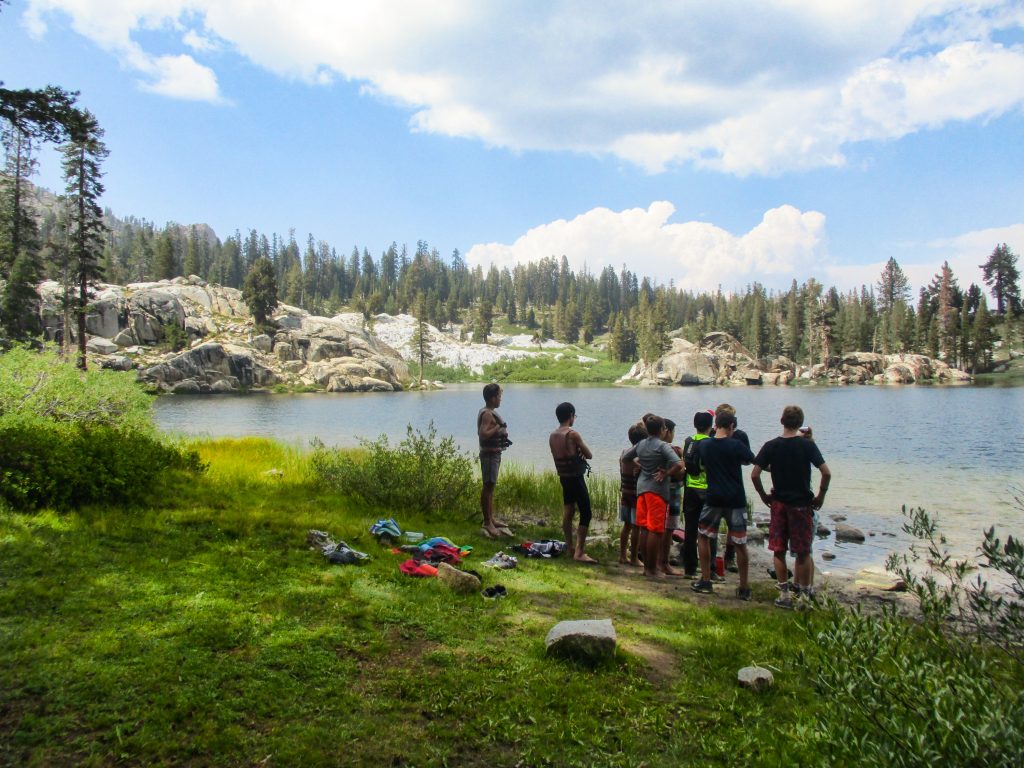
In Homesick and Happy, Thompson says, “Homesickness is not a psychiatric illness. It is not a disorder. It is the natural, inevitable consequence of leaving home. Every child is going to feel it, more or less, sooner or later. Every adult has had to face it and overcome it at some point in life … If you cannot master it, you cannot leave home.”
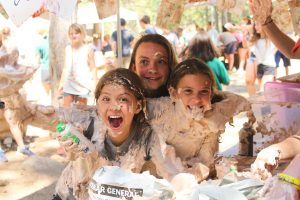
I would like to note that you do not need to use all of these messages but instead choose the ones you think will resonate most with your child. What’s most important is that you express confidence in your child and in the camp experience. These same messages would be great as responses to a sad letter you receive from your camper.
I always tell the kids that the fun and happy feelings at camp usually far outweigh any sad feelings. Many kids tell me they “don’t feel homesick at all,” but there are some who struggle, especially during their first summer. Those kids seem to grow the most and feel the most pride in their accomplishment of staying at camp. If you are feeling worried about how your child will do at camp, know that you are giving your child a precious gift by allowing them this special time where they get to grow their wings.
Parking Your Helicopter
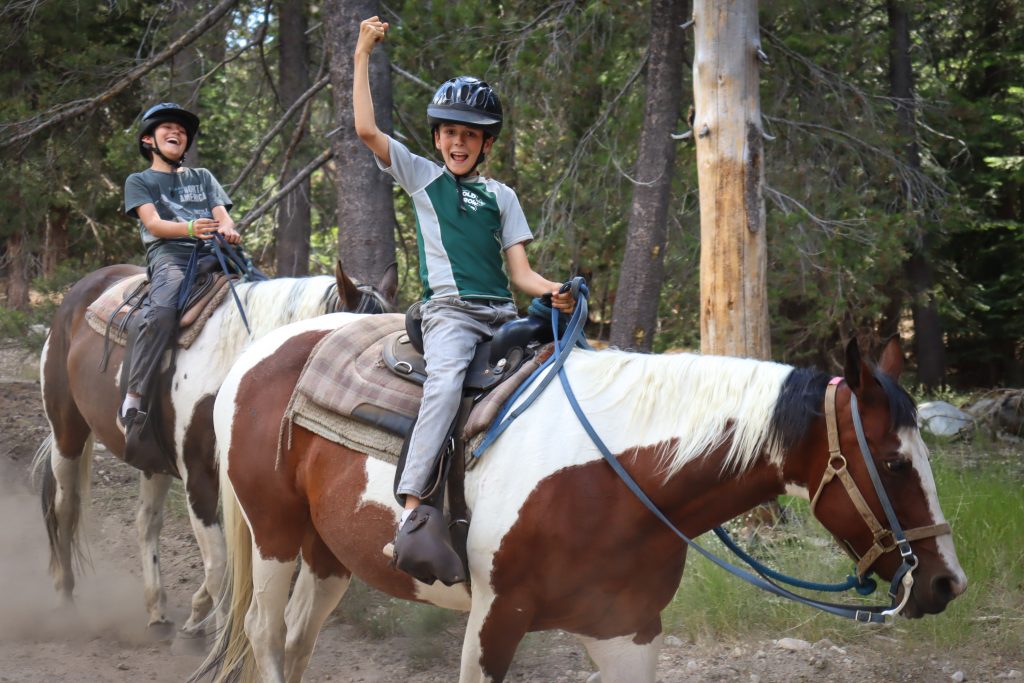 Originally published on Sunshine Parenting
Originally published on Sunshine Parenting
By Audrey “Sunshine” Monke
As parents of this generation, we’ve been told that great parenting means being super-involved with our children and always being in constant communication with them. We give them cell phones as soon as we feel they are ready to have a bit of independence so that we can be assured that they will call us the minute they need us.
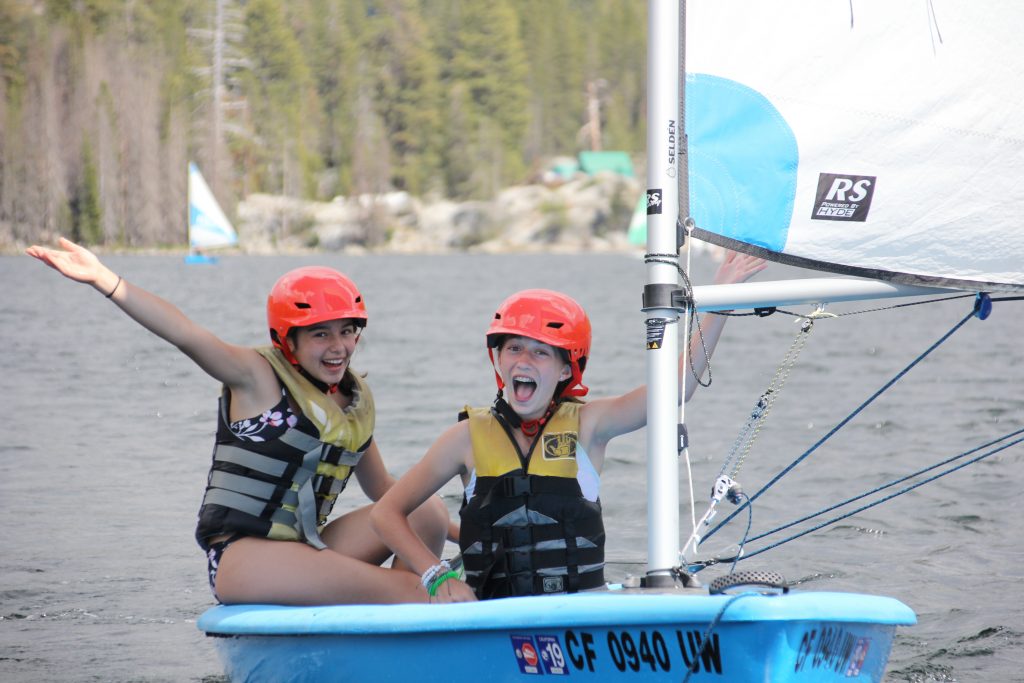
There are many benefits to this parenting style. We know our kids well and have developed close family relationships. We also know each of their homework assignments (and assist with a few of them), the drills they did at soccer practice (because we either coached their team or stayed and watched), and what they ate for snack at school. The downside to our “helicopter” parenting, though, is it makes it difficult for our children to develop their independence, problem-solving, and decision-making skills.
Hooray for camp! Without a cell phone (or their parent next to them) to immediately turn to when they are faced with a decision, campers learn to use other resources – including their own great minds. Without us watching them and being a reminder of what they’ve been scared of in the past, they challenge themselves and try something new. The confidence that results from their accomplishments and independence can be life-changing, and the best thing we hear from our campers and parents is that camp truly makes their life better.
According to past staff member and camper, Renee “Zippy” Tucknott, “Gold Arrow Camp taught me early in life that I can survive in the world without my parents making my decisions, and I am able to make my own decisions and choices that will impact my life. When I got to college, I experienced some of the same decisions and choices and already knew I could survive on my own.”
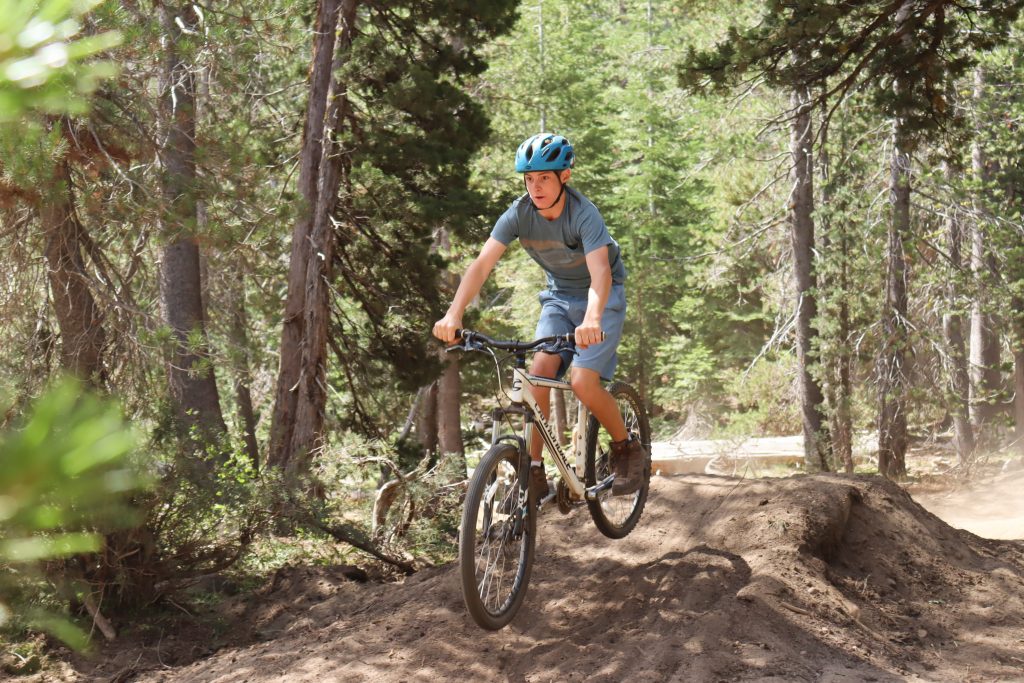
As technology has provided us with the ever-increasing ability to be in touch– immediately – with everyone, it has also given the children and young adults of this generation a crutch that we (those of us in our late 30s and up) did not have. When faced with a decision or problem with a friend, we had to rely on ourselves first and later discuss it with our parents. Now, kids are getting accustomed to calling their parents before attempting to solve the challenge on their own.
At GAC, we have a great support network to help our campers work through challenges, fears, and problems that may come up. They never feel “alone,” but they feel independent from their parents, and a lot of pride comes from that independence.
So, enjoy your child’s stay at GAC this summer and rest assured that while your helicopter is parked, your child is spreading their wings!
10 Parenting Tips from Camp Counselors
At one time in their lives, many of the parents I know were camp counselors. Those same people have told me that their time spent as counselors was great training ground for parenting. Among other things, they learned to comfort, encourage, set goals, and resolve disputes — all things we experience daily in our lives as moms and dads.
At one time in their lives, many of the parents I know were camp counselors. Those same people have told me that their time spent as counselors was great training ground for parenting. Among other things, they learned to comfort, encourage, set goals, and resolve disputes — all things we experience daily in our lives as moms and dads.
However, not every parent has had the benefit of camp counselor training. In fact, most parents have had NO training at all. Perhaps they took a Lamaze class or two, but we all know that having the kid is not the hardest part!
I’ve often lamented that all parents should be required to go through some training, at least the same training camp counselors do (a minimum of one week at most camps). Unfortunately, that is not the case, nor is it realistic. So the best we can do for those who were never camp counselors is offer a few tried and true tips from a few outstanding folks who were:
1. Practice catching kids doing the right thing.
2. Check in with each child one-on-one every day.
3. Establish fun daily traditions: share highs & lows at dinner or bedtime, do riddles, read a book out loud, play games together, collect family memories.
4. Sing and dance together A LOT.
5. Smile and stay positive. Apologize for any crabbiness.
6. Address difficult issues privately and by focusing on the ISSUE not the child.
7. Do team-building activities like sharing goals and dreams.
8. Get unplugged and focus on face-to-face communication.
9. Get outside and get dirty.
10. Follow a predictable schedule and enforce rules consistently.
2023 Theme: Count on Me!
This year’s summer theme, chosen to help guide campers to be trustworthy and dependable friends, cabin mates, and family members, is “Count on Me.”
Our first summer theme was in 2012 when we chose the theme of gratitude. We followed that theme with kindness (Cool 2B Kind), relationship building (Creating Connections), helpfulness (Give a Hand), grit (Growing Grit), positivity (The Energy Bus), a focus on friendship (Find-a-Friend), building up others (Filling Buckets), being our best selves (Be You ), appreciating our community (Better Together), and Choosing Kindness (2022).
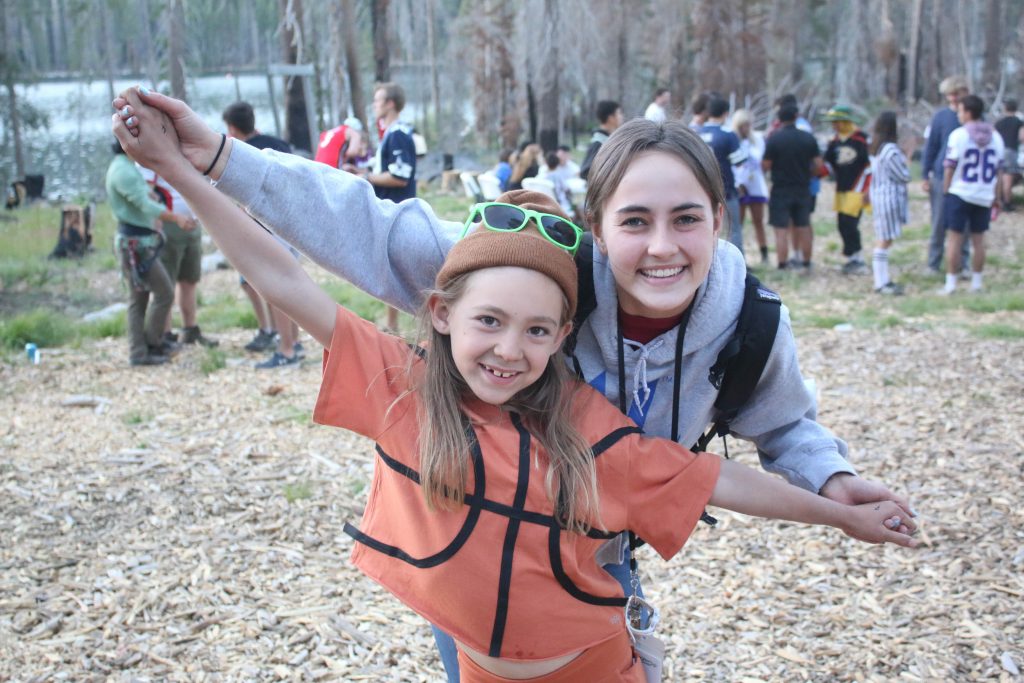 An important character trait of a good friend is being reliable, dependable, and trustworthy. We know that it’s important that our campers develop these traits. This year at Gold Arrow Camp, we will be learning how to be people our friends can count on.
An important character trait of a good friend is being reliable, dependable, and trustworthy. We know that it’s important that our campers develop these traits. This year at Gold Arrow Camp, we will be learning how to be people our friends can count on.
We’re thrilled to make our GAC community stronger by helping campers understand the importance of being a person their cabin mates, friends, and family can count on. There are many opportunities at camp to be dependable and reliable. “Counting on Me” means using our words and actions to show others they can count on us:
- Count on me to be a trustworthy friend
- Count on me to be a dependable cabin mate
- Count on me to be a responsible community member
- Count on me to challenge myself to grow at camp
- Count on me to show gratitude for others
- Count on me to be kind
- Count on me live healthy
- Count on me to stay unplugged and connect with others
- Count on me to be there when you need me
The pinwheel represents our 2023 theme. No matter which of its blades catches the smallest breeze first, it turns the whole wheel together. It takes less effort to spin as each individual part gathers more of the wind. Without all of its blades, it cannot spin evenly and efficiently. Each blade relies on the others. Working together, the pinwheel creates a mesmerizing display of beauty. It reacts to the gusts that blow its way then it gently returns to rest, ready for what the day may bring.
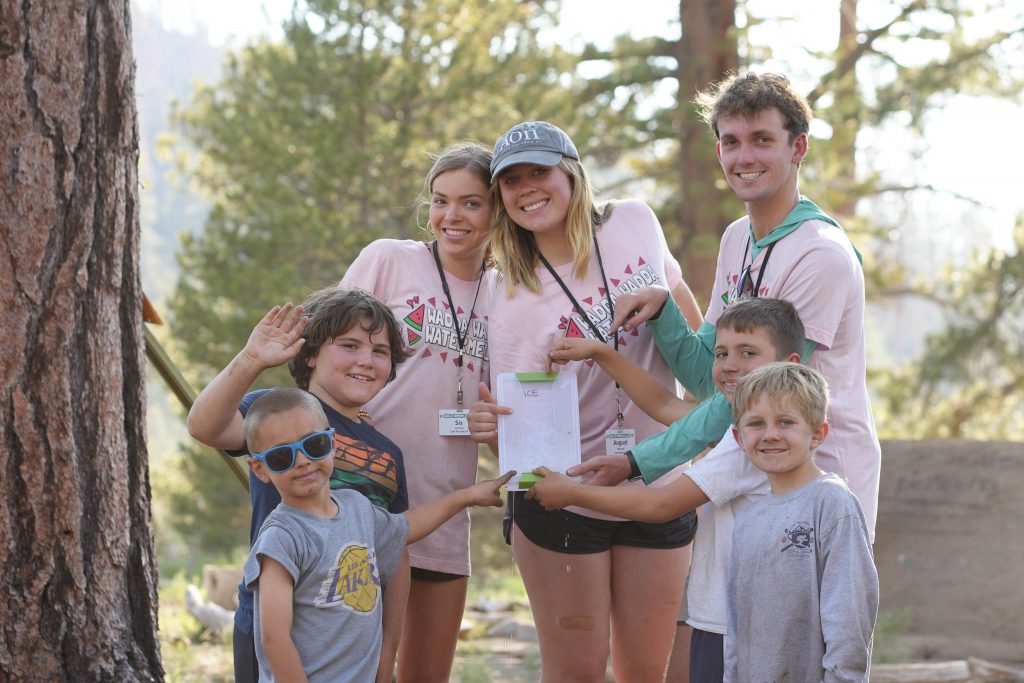 “Count on Me” builds on the work we’ve done in the areas of positivity, friendship, and kindness. The friendships we forge at camp are special for many reasons, and we know that keeping the focus on being someone others can count on will add depth and richness to our connections. It is our sincere hope that 2023’s GAC campers will take this theme home and continue to be people others can count on in their communities by being trustworthy, reliable, and dependable. You can count on me!
“Count on Me” builds on the work we’ve done in the areas of positivity, friendship, and kindness. The friendships we forge at camp are special for many reasons, and we know that keeping the focus on being someone others can count on will add depth and richness to our connections. It is our sincere hope that 2023’s GAC campers will take this theme home and continue to be people others can count on in their communities by being trustworthy, reliable, and dependable. You can count on me!
Do Camp Experiences Improve Academic Performance?
In all probability, the educationist of the year 2000 AD will look back upon us and wonder why we, the school people of 1938, failed to include the camp as an integral unit of our educational system.
– The Kappan Magazine, the official magazine of Phi Delta Kappa – 1938
If you ever have the opportunity to visit us at camp, you’ll have the opportunity to sing the GAC Song. While many people love the “wadda-ing” that takes place in the chorus, my favorite part comes in the final verse. We sing, “I sure did learn much more here than I ever did at school.”
My love of this line comes from my teaching before I came to work for Gold Arrow full time; I was a high school social science teacher for 14 years.
It may seem odd that a teacher would love a line about learning more at camp than we did at school. But I do because camp and school operate symbiotically. While those of us in camping and education have known this anecdotally for many years, there is an increasing body of evidence that supports that belief with data.
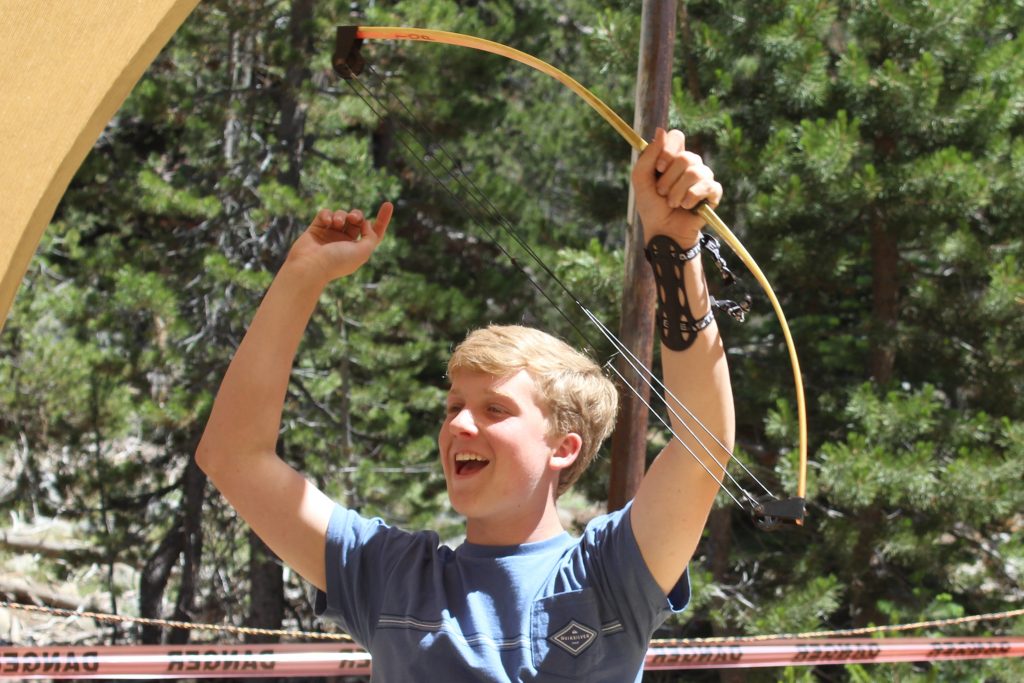 Some of that research has been supported by the American Camp Association, and I was privileged to hear one of the leaders in the field, Lance W. Ozier Ed.D. speak on this at a recent conference. He has written on the history of camps and schools (you can read it here). In that article, Dr. Ozier lays out the reasons that camp blossomed in America after the Civil War. As people moved to the cities, adults began to worry that their children were losing touch with nature, and so they sent them to live in nature. How familiar does that refrain sound to us today?
Some of that research has been supported by the American Camp Association, and I was privileged to hear one of the leaders in the field, Lance W. Ozier Ed.D. speak on this at a recent conference. He has written on the history of camps and schools (you can read it here). In that article, Dr. Ozier lays out the reasons that camp blossomed in America after the Civil War. As people moved to the cities, adults began to worry that their children were losing touch with nature, and so they sent them to live in nature. How familiar does that refrain sound to us today?
And yet the challenges for young people are even greater now than they were then. The rise of computers, social media, and cell phones has had as great a social impact as urbanization a hundred years ago. Today, camp serves not just as a way to re-engage children with nature, but as a way to help them learn vital social skills in a systematic way. We are fortunate that one of our camp owners and directors, Audrey “Sunshine” Monke, has studied the impact of camp on building social skills. Her research shows that a significant majority of campers report having improved social skills because of camp. She believes that this is because camp counselors are specifically trained in helping campers to improve skills like making friends and listening to others.
It isn’t just Sunshine that has found these results. According to research conducted by the American Camp Association, campers and their parents report that campers have more social skills, higher self-esteem, and more independence. When a child returns to school more comfortable socially, they have more confidence and are more likely to sit up front, ask questions, and ignore distractions. When they do that, they are setting themselves up for more academic success.
But wait, there’s more! Camp also provides an opportunity for children to struggle in a safe and supporting environment. At camp, we talk a lot about growing grit, a concept that has been moved into the public discussion about education by Angela Duckworth’s research. We think that grit is so important we made it our theme for an entire summer! But there is increasing research that shows how struggling actually changes the way the brain grows. This research in neuroplasticity shows that the brain grows much more when it is engaged in something difficult. So every time a camper tries to waterski another time, or climbs the rock wall, their brains are growing!
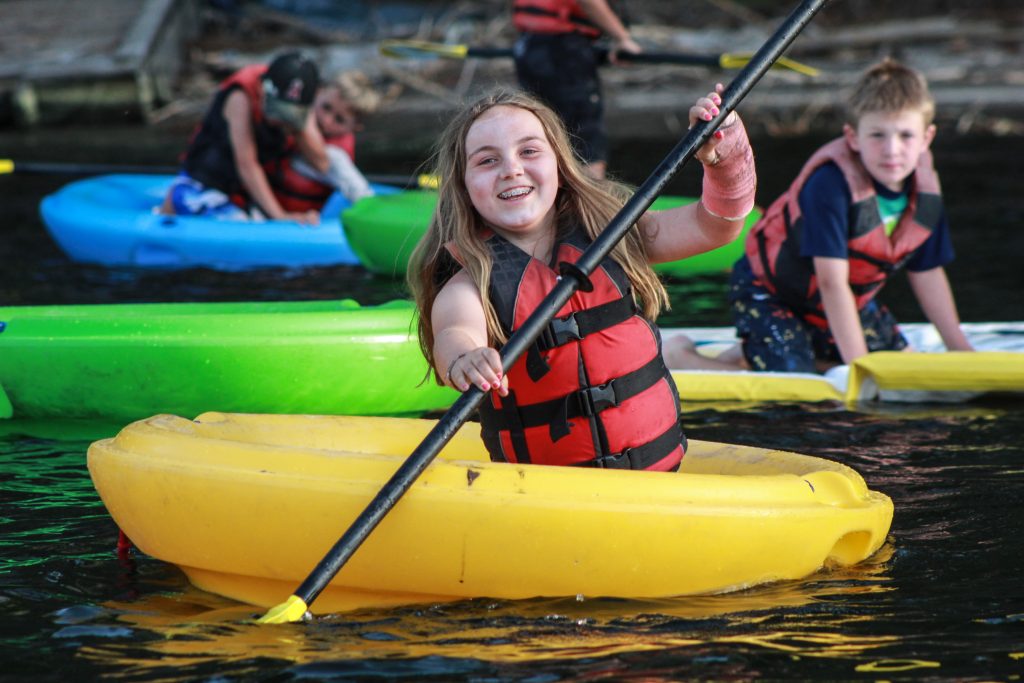 (Interestingly, that same research shows that the brain also grows more and stronger synapses, in mice at least, when they are allowed to roam openly in nature.)
(Interestingly, that same research shows that the brain also grows more and stronger synapses, in mice at least, when they are allowed to roam openly in nature.)
None of this is news to people who send their kids to camp, or those of us who work at camp. We can see anecdotally that kids are more confident and more “alive” after camp. But this research simply confirms what so many educational researchers knew in the early 1900s: going to camp when you’re not in school will help your education.
